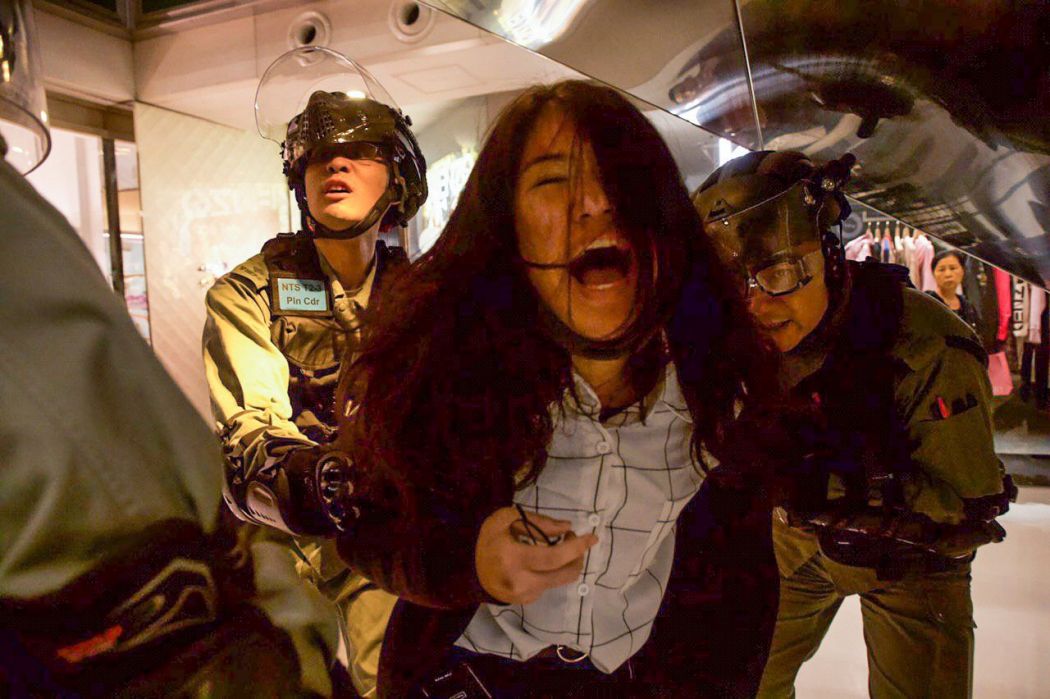By Micah Mudlaff
On the day of Hong Kong’s infamous Handover, it was unlikely anyone thought the future obstacle to CCP domination over Hong Kong would be businessman Donald Trump.
Yet, in 2020, the now-President of the United States and his administration appear to be leading the international opposition to Beijing’s ever-growing intrusions into the formerly autonomous city.

On Thursday the President said the United States would respond “very strongly” if national security legislation was bestowed on Hong Kong by the National People’s Congress.
Days earlier, U.S. Secretary of State Mike Pompeo condemned declining press freedom in the city, and the U.S. Congress took an active role in the ongoing conflict by passing the Hong Kong Human Rights and Democracy Act in November 2019.
America’s role as a world power notwithstanding, one has to wonder what the United Kingdom plans to do amid this crisis.
While the United States abdicated any extraterritorial rights within China in 1943, the U.K. continues to assert the validity of the Sino-British Joint Declaration.
As a co-signatory, this should put the British government in a position to assert its legal obligation under international law to ensure the treaty is upheld. Officials in Beijing have repudiated this line, suggesting that the agreement bears no “practical significance” to the governance of the city.

This statement was apparently aimed at dampening an official British reaction to the worsening situation: “Britain has no sovereignty, no governing power and no supervising power over Hong Kong. I hope the relevant parties will reckon with this reality”.
If that was Beijing’s intention, so far it has worked.
While affirming the validity of the Sino-British Joint Declaration, the British government has not done anything meaningful to defend it. Consider British First Secretary of State Dominic Raab’s mild statement last November condemning violence and calling on the Chinese Government to respect ‘one country, two systems’.
Does anyone believe that was effective? Further, a proposal to give Hong Kongers with British National (Overseas) passports full British citizenship was rejected by the British Government, citing a 2007 government finding that “full British citizenship would be a breach of the commitments made between China and the UK in the 1984 Joint Declaration.”

This justification for continued inaction by the British Government can be easily summarised: “legally binding for me, but not for Xi.”
The escalation of infringements on Hong Kong’s autonomy show that press releases are insufficient. The announcement of an impending national security edict, in a public statement without any mention of Hong Kong’s autonomy, proves this.
British inaction in response to the CCP’s nullification of the joint declaration is tacit acceptance of Beijing’s position. After all, refusing to enforce the treaty is an invitation to violate it with no repercussions. Beijing knows Britain will not act, so they are behaving as if the treaty does not exist at all.
As US Government officials continue to voice support for the pro-democracy movement, one cannot deny the ease with which Beijing decries this “foreign intervention”. Thursday’s announcement used this claim to justify the need for national security legislation.

Even if one considers these charges bluster, the Hong Kong Human Rights and Democracy Act cannot be viewed as a mechanism to defend Hong Kong’s cherished liberties.
Its purpose is “to urge the Government of the People’s Republic of China and the Government of the Hong Kong Special Autonomous Region to uphold their commitment to the people of Hong Kong, including providing a high degree of autonomy for Hong Kong as articulated in the Joint Declaration and the Basic Law”.
It should go without saying that this official “urge” does not carry as much weight as the legally binding treaty that it references. If the British Government has any true belief in the validity of the declaration they signed in 1984, they must act now before it is too late.
Micah Mudlaff studied Economics and Chinese History in the US and is currently based in the Washington D.C. area. Over the past five years, he has split his time between the US and Hong Kong. Views expressed are his own.
Correction: The final sentence of this article was corrected to state that the Joint Declaration was signed in 1984. We regret the error.
